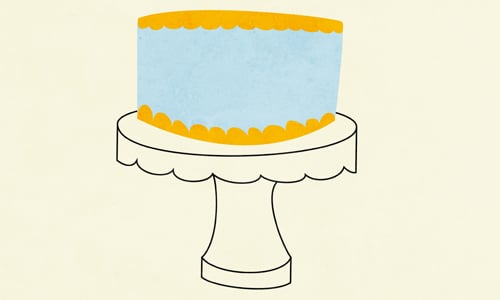For as long as men and women have been being born, they've had birthdays. Birthday parties are not that ancient, but they do go back at least 3,500 years (the book of Genesis mentions a banquet in honor of a Pharaoh's birthday back in 1534 bce). The interesting thing about birthday celebrations is that, for much of our history, they were not a very "Jewish" custom.
This is not to say that there are no sources in Torah for the concept of a birthday. The Talmud speaks of the specialness of a person's date of birth as a time of empowerment and opportunity for him or her. One of the most important days of the Jewish year is Rosh Hashanah, Adam's—and mankind's—birthday. But as a rule, Jews did not celebrate their birthdays. Indeed, while the dates of passing (yahrtzeit) of the great figures of Jewish history are recorded and commemorated, their dates of birth are mostly unknown.
King Solomon gave voice to this attitude when he said, "Better the day of death than the day of one's birth" (Ecclesiastes 7:1). On the face of it, this seems a rather negative view of life. But upon deeper contemplation, it in fact expresses the classical Jewish attitude that "deed is the paramount thing"--that actual achievement, rather than concept, theory or potential, is what is significant.
The newborn infant may be brimming with genius and talent—but he or she has not yet done anything with it. So what's there to celebrate? Who's to know whether the potential will be realized? Or that is will be realized toward good and G‑dly ends?
The day of a person's passing, on the other hand, is the culmination of his or her mission in life. This is when the sum total of his or her achievements have come to actuality, to wield their combined influence on our lives. This is why the yahrtzeit of a great person is such a special occasion: when we celebrate a life, we do so at its point of greatest impact upon the world.
But also if we would attribute significance to pure potential, the birthday would not be the time to celebrate that, either. Weeks and months before the fetus emerges from the womb, it has hands and feet, a throbbing heart and a thinking brain. If we're going to celebrate the creation of new potential, the time for that is a point prior to the birthday, perhaps the point of conception.
If you're thinking of celebrating your birthday, you're going to have to ask: Yes, I was born, but what happened?
Albert Einstein is reputed to have remarked, "The illusion that we are separate from one another is an optical delusion of our consciousness." You look at yourself and you look at me, and you see two entities. But matter is not really "solid" or clomped in bodies; it is a vast amalgam of infinitesimal points, each exerting a complex web of forces and counter-forces on its fellows. A "human being" is no more or less a distinct entity than an atom in his body, the planet he inhabits, or the universe as a whole.
Physically, there is no real division between your body and mine. But there is a deeper reality than that described by the laws of physics. At the heart of the Torah's vision of life is the idea that every individual human being has a soul—a distinct spiritual identity, and a distinct mission in life.
This is what came into being on your birthday. Not your physical existence, not your vitality, not your spiritual potential. The fetus exists, is alive, thinks and feels. But it is defined by Torah law as "a limb of its mother." It is not a distinct entity, a thing unto itself. Birth marks the point at which your body received and fused with your soul, the point at which you attained your individuality.
In recent times, the birthday has been reinstituted as a Jewishly and spiritually significant occasion. The previous Lubavitcher Rebbe (Rabbi Yosef Yitzchak Schneerson, 1880-1950) promoted the celebration of the 18th of Elul, the birthday of two great figures in the Chassidic movement: Rabbi Israel Baal Shem Tov, the founder of Chassidism; and Rabbi Schneur Zalman of Liadi, the founder of its Chabad branch. Today, it has become widespread custom among Jews—particularly among Chassidim—to commemorate the birthdays of tzaddikim and leaders, and to designate one's own birthday as a time for introspection and celebration.
It is no accident that the rebirth of the birthday is intertwined with the rebirth of Chassidism. One of the central messages of the Baal Shem Tov and his disciples is the very message of the birthday:
"You, as an individual," said the Chassidic masters, "are special, unique, and utterly indispensable. No person alive, no person who has ever lived, and no person who shall ever live, can fulfill the specific role in G‑d's creation entrusted to you."








Join the Discussion